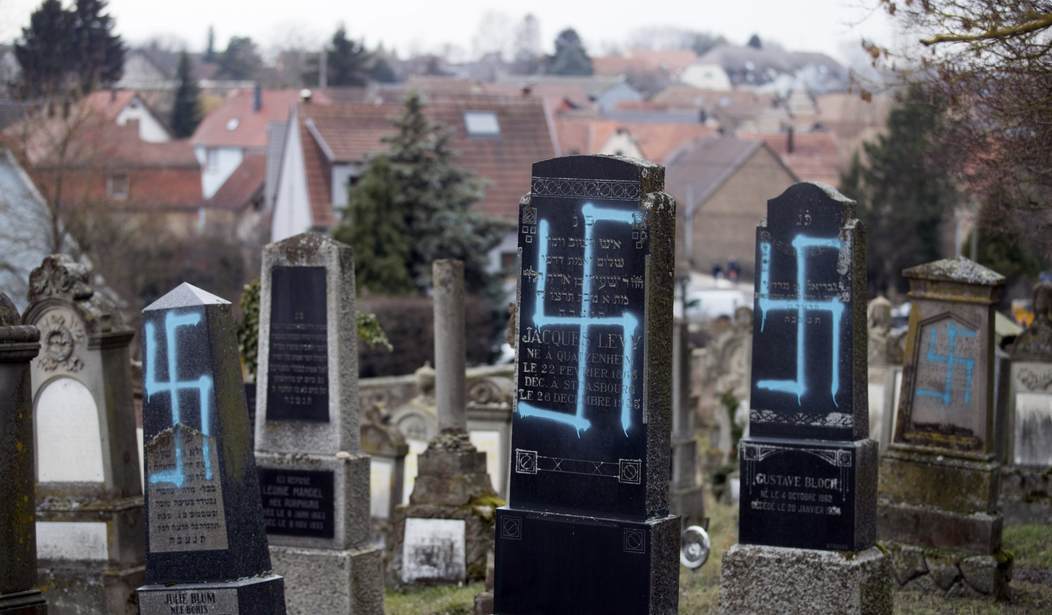WASHINGTON – Deborah Lipstadt, professor of modern Jewish history and Holocaust studies at Emory University, said that anti-Semitism is “very strong” on both the left and right of the political spectrum.
Lipstadt, author of History on Trial: My Day in Court with a Holocaust Denier, which was later adapted into the 2016 film Denial, said she was “shocked but not surprised” when she heard about the Pittsburgh synagogue shooting.
“Anybody who has studied this and studied what’s been going on and studied the vindictive language and the separation and the extremism we’ve seen in this country would not be surprised,” Lipstadt said during a U.S. Holocaust Memorial Museum discussion, “Hate and Its Impact: Sowing the Seeds of Global Anti-Semitism,” on Thursday. “But today I think we see anti-Semitism on both the right and the left.… So if I’m on the left I’m quick to see it on the right, and if I’m on the right I’m quick to see it on the left. Hello – it’s on both sides and it’s very strong on both sides.”
David Gregory, an analyst at CNN, said social media is a “toxic space” that allows anti-Semitism and white nationalism to spread. Gregory said there is “progressive anti-Semitism” today and anti-Semitism on the right. Gregory mentioned some of Trump’s actions during the discussion.
“His campaign had the ad with Hillary Clinton and the stacks of money and the Jewish star in the background, and as a social media presence he’s one of the biggest people out there and has retweeted – you make the point in your book that he has, in your view, facilitated the spread of anti-Semitism,” he said to Lipstadt.
In response, Lipstadt shared her assessment of Trump and Jeremy Corbyn, leader of the Labour Party in Britain.
“I don’t know if either of them are anti-Semites. I tend to think, certainly in terms of Donald Trump, not. I think he’s very proud of his Jewish daughter, Jewish son-in-law, Jewish grandchildren, etc., but again, I don’t know what’s in Corbyn’s heart. But both men have facilitated anti-Semitism,” she said.
“Stirring up the pot, they’ve used tropes, they’ve used themes, talking about ‘nice people on both sides,’ Corbyn refusing to recognize an overtly anti-Semitic mural as anti-Semitic. So it doesn’t matter to me what’s in someone’s heart – that’s between them and their cardiologist, you know? It’s irrelevant. It matters what you do,” she added.
Gregory, whose father is Jewish, said people have come up to him on the street to express their opposition to Trump and compared him to Nazi Germany.
“I just say stop, stop it, that’s just ahistorical and you make yourself sound ignorant when you say things like that,” Gregory said.
Lipstadt, appointed to the U.S. Holocaust Memorial Council by President Clinton, agreed with Gregory’s comments.
“I think that glib comparisons to Nazi Germany don’t serve any purpose and are historically wrong. There are things to compare attacks on democratic institutions, attacks on judges, attacks on Department of Justice, various incendiary things and the press,” she said. “It’s worrisome in and of itself and not because it portends a Third Reich or something like that and I think those kinds of comparisons don’t help the conversation.”
Lipstadt shared her description of contemporary anti-Semitism.
“I don’t know the source of this, but an anti-Semite is someone who hates Jews more than is absolutely necessary. Now, that may sound amusing and when I tell my students, they all wonder, can you laugh? I say, yes, you can laugh, so you can laugh too, but think about it, first, let’s say in terms of racism. You’re driving on the highway and somebody comes and swerves and you’re knocked off the road,” Lipstadt said.
“You don’t know these people, it’s not road rage, nothing, they just decide to push you off the road. You get home and you’re completely shaken and people at home ask what happened. And you say a driver almost killed me, knocked me off the road, the car is totaled but I’m OK – that’s one thing. But if you get home and you say a black driver knocked me off the road, that’s racism because that’s unnecessary,” she added.
Lipstadt continued, “If the police officer comes up and says I saw what happened, describe the driver, and you say it was an African-American, that’s a different story, then it is relevant. So if you hate someone and you just hate them, that’s fine, Jews hate each other all the time, go to a synagogue board meeting and you’ll see it – and I say that only half in jest – but if you hate them more then you’re dealing with anti-Semitism.”
Brendan Murphy, Holocaust educator and teacher fellow at the Holocaust Memorial Museum, and Richard Allen Greene, senior news editor for data and integration at CNN, also appeared on the panel.









Join the conversation as a VIP Member